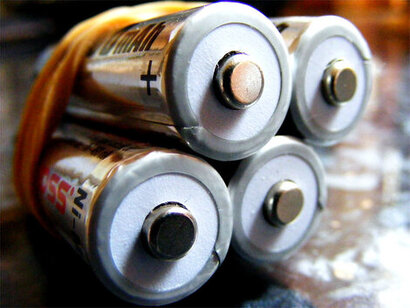
All-solid-state lithium-ion batteries offer enhanced safety and energy density compared to liquid electrolyte counterparts, but face challenges like lower conductivity and insufficient electrode contact.
In a recent study, scientists have discovered a stable, highly conductive lithium-ion conductor in the form of a pyrochlore-type oxyfluoride. This innovation addresses the need for non-sulfide solid electrolytes, offering higher conductivity and stability and paves the way for advanced all-solid-state lithium-ion batteries with improved performance and safety.
All-solid-state lithium-ion (Li-ion) batteries with solid electrolytes are non-flammable and have higher energy density and transference numbers than those with liquid electrolytes. They are expected to take a share of the market for conventional liquid electrolyte Li-ion batteries, such as electric vehicles. However, despite these advantages, solid electrolytes have lower Li-ion conductivity and pose challenges in achieving adequate electrode-solid electrolyte contact. While sulfide-based solid electrolytes are conductive, they react with moisture to form toxic hydrogen disulfide. Therefore, there's a need for non-sulfide solid electrolytes that are both conductive and stable in air to make safe, high-performance, and fast-charging solid-state Li-ion batteries.
In a recent study published in Chemistry of Materials on 28 March 2024, a research team led by Professor Kenjiro Fujimoto, Professor Akihisa Aimi from Tokyo University of Science, and Dr Shuhei Yoshida from Denso Corporation, discovered a stable and highly conductive Li-ion conductor in the form of a pyrochlore-type oxyfluoride.
“Making all-solid-state lithium-ion secondary batteries has been a long-held dream of many battery researchers” said Professor Fujimoto. “We have discovered an oxide solid electrolyte that is a key component of all-solid-state lithium-ion batteries, which have both high energy density and safety. In addition to being stable in air, the material exhibits higher ionic conductivity than previously reported oxide solid electrolytes.”
The pyrochlore-type oxyfluoride studied underwent structural and compositional analysis using various techniques, including X-ray diffraction, Rietveld analysis, inductively coupled plasma optical emission spectrometry, and selected-area electron diffraction. Specifically, it was found to be higher than the lithium-ion conductivity of known oxide solid electrolytes. The activation energy of ionic conduction of this material is extremely low, and the ionic conductivity of this material at low temperature is one of the highest among known solid electrolytes, including sulfide-based materials.
Even at –10°C, the new material has the same conductivity as conventional oxide-based solid electrolytes at room temperature. Furthermore, since conductivity above 100°C has also been verified, the operating range of this solid electrolyte is –10 °C to 100 °C. Conventional lithium-ion batteries cannot be used at temperatures below freezing. Therefore, the operating conditions of lithium-ion batteries for commonly used mobile phones are 0 °C to 45 °C.
Unlike existing lithium-ion secondary batteries, oxide-based all solid-state batteries have no risk of electrolyte leakage due to damage and no risk of toxic gas generation as with sulfide-based batteries.
The new innovation is expected to lead future research.
“The newly discovered material is safe and exhibits higher ionic conductivity than previously reported oxide-based solid electrolytes” added Professor Fujimoto. “The application of this material is promising for the development of revolutionary batteries that can operate in a wide range of temperatures, from low to high. We believe that the performance required for the application of solid electrolytes for electric vehicles is satisfied.”
The new material is highly stable and will not ignite if damaged. It is suitable for aircraft and other places where safety is critical. It is also suitable for high-capacity applications, such as electric vehicles, because it can be used under high temperatures and supports rapid recharging. Furthermore, it is also a promising material for miniaturization of batteries, home appliances, and medical devices.
In summary, researchers have not only discovered a Li-ion conductor with high conductivity and air stability but also introduced a new type of superionic conductor with a pyrochlore-type oxyfluoride. Exploring the local structure around lithium, their dynamic changes during conduction, and their potential as solid electrolytes for all-solid-state batteries are important areas for future research.
For additional information:

